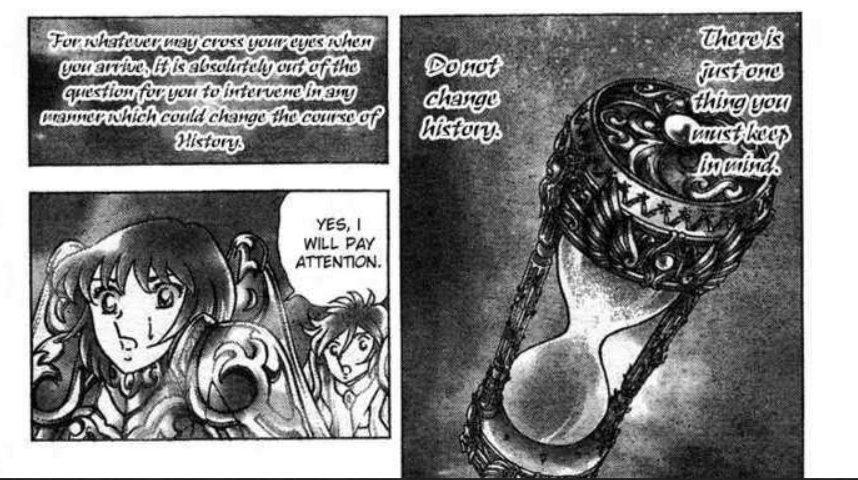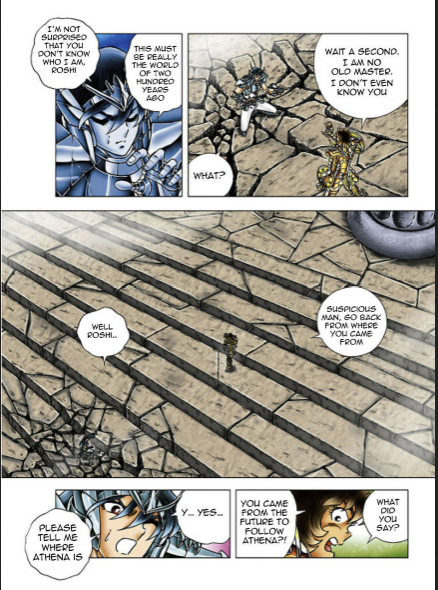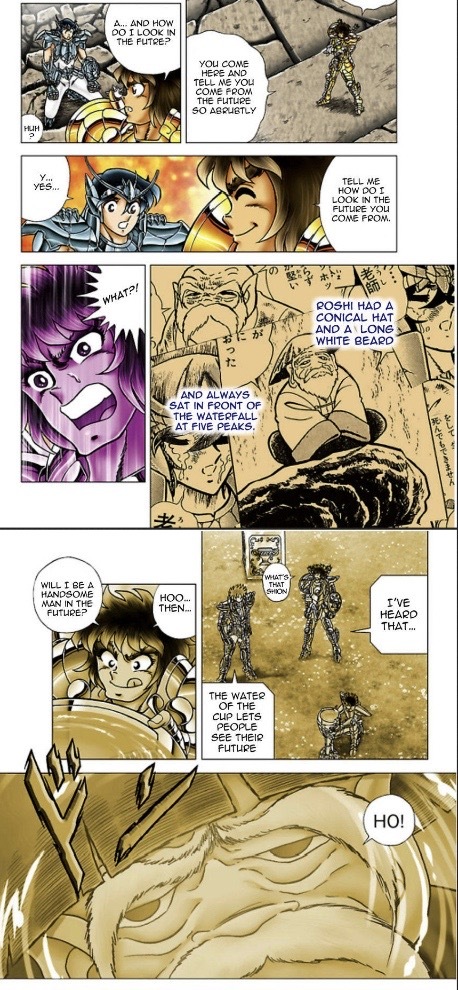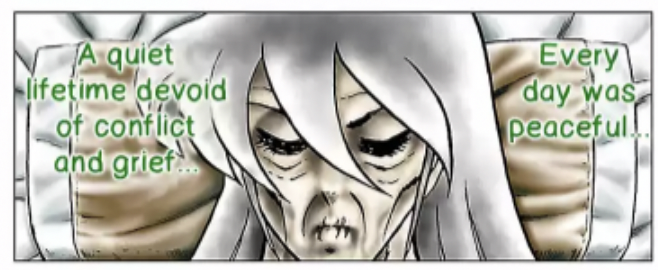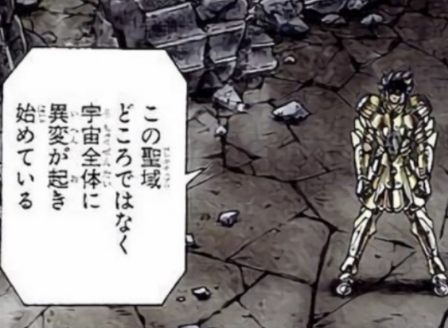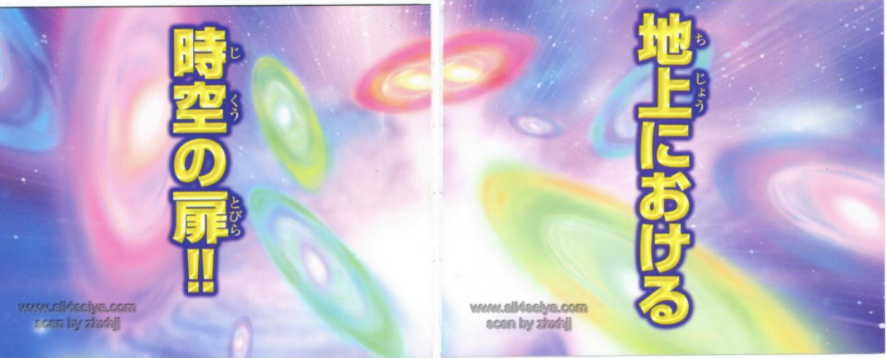equivocation logical fallacy
Equivocation is a logical fallacy that occurs when the meaning of a word or phrase is shifted in the middle of an argument to support a specific conclusion. In the example provided:
"全 means the entirety just as often. Literally if you just look into it, 全宇宙, 90% of the time means the entire universe."
The fallacy lies in the assumption that the word "全" has the same fixed meaning in all contexts, which is "entirety" or "whole." The person making this argument presents "全宇宙" as an example to support their claim, asserting that it "90% of the time means the entire universe."
However, this argument ignores the possibility that the word "全" may have other meanings or nuances depending on the context in which it is used. It fails to consider that words can have multiple definitions, and their meaning can vary depending on the specific situation or language usage.
For instance, while "全宇宙" might indeed be translated as "entire universe" in many instances, it is essential to recognize that language is not always so rigid. Different contexts, cultural differences, and even changes over time can introduce variations in how words are used.
To avoid the fallacy of equivocation, a fair and accurate approach is to consider all possible definitions of the word "全" and evaluate each instance of its use within its specific context. One cannot simply assume that it always means "entirety" without considering potential exceptions or alternative meanings.
Literally no one said this does can not mean all universes, however there is zero context to suggest that there and all the more to confirm entire universe.
You are attacking a blatant strawman here.
hmm lets point out some issues with the argument being used here.
- Contradictions within the opponents counter arguments: The person claims that the content posted is from other series not written by Kurumada, which contradicts what Next Dimension says. This suggests that the information from the other series is not valid or reliable, yet they still use it to support their argument.
- Appeal to Authority Fallacy: The person mentions that "Next Dimension" (presumably a work by Kurumada) is more valid or authoritative than other series not written by him. While it is reasonable to consider the original creator's work as primary, dismissing information solely because it comes from other writers is an appeal to authority fallacy. In addition to that, there is a detailed canoncity blog here which is was accepted on past CRTs with information for all spinoffs being canon and cross-scaling being valid, https://vsbattles.fandom.com/wiki/User:TheUnshakableOne/sandbox
- False Dilemma Fallacy: The person presents a false dilemma by stating that if changing the past were not possible, it would mean that Athena failed to change the past, not that she went to a different universe to change it. This oversimplifies the possibilities and excludes other potential explanations for the events.
- Ad Hominem Fallacy: The person questions the coherence of the idea that past, present, and future are different universes, labeling it as an "oxymoron." However, they fail to provide substantive arguments against this concept and instead resort to attacking the idea itself without addressing its merits.
- Cherry-Picking: The person selects certain elements from the story to support their argument while ignoring other aspects that may contradict their claims. For example, they dismiss the possibility of different universes for past, present, and future despite acknowledging that "if they somehow actually were," it wouldn't change how the term "universe" is used, which implies they are not considering all relevant aspects.
- Potential Hypocrisy: The person accuses others of contradicting the story's plot, character motives, and dialogue, but they themselves seem to cherry-pick evidence to fit their argument while dismissing or ignoring other relevant information.
In summary, the person's statement contains contradictions, fallacies such as appeal to authority, false dilemma, and ad hominem attacks, and potentially hypocritical aspects related to how they handle evidence and counterarguments.
1. No one said that information from other series isn't valid or reliable, but that when they contradict, each series own respective rules take precedence, which they do. Again, you misinterpret the point and make a strawman.
2. Presumably? It's literally written and drawn by him front to back. And no, the information from GA was put into doubt because it directly contradicts what Next Dimension says verbatim from credible characters.
3. And.. the fact that it's literally stated she went to the past of their timeline (200 years ago). It doesn't mean she went to a different universe, because it's literally stated otherwise and this is the entire plot.
4. How the hell is that possibly an Ad Hominem? Saying that the idea itself is invalid is literally exactly what ISN'T an Ad Hominem. Dancing around this point isn't helping your case. The usage of past, present, future, and saying that they're specifically 200 years in the past completely contradicts your theory.
5. I never ignored anything and took the effort to address every issue brought up, I'm just explaining how even if your case were true, it doesn't change anything about the usage of universe and that it' non sequitur to the claim all universes were affected.
6. Yeah, that's exactly what you're doing. The characters throughout the entire story talk as though they're in the past of their timeline, and even intermediate between seeing the past and future. None of their interactions make sense whatsoever with this ridiculous theory that the past and future are different universes.
It literally could not be made more that they are simply in the past of one timeline.
No it doesn't. The space-time distortions were within their universe and were one-way portals out of the universe which happened to lead into another dimension. The other universes were completely unaffected.
- Straw Man Fallacy: The person is attacking a straw man by Claiming that the opposing argument asserts "time travel doesn't work." However, the original argument does not explicitly state that time travel is entirely impossible; it merely points out potential contradictions and inconsistencies in the specific series.
- Cherry-Picking: The person seems to cherry-pick certain elements from the series to support their argument while disregarding or downplaying other relevant information. They focus on certain instances of time travel being shown in the series but fail to address the inconsistencies or contradictions raised by the original argument.
- Non Sequitur: The person's statement "That doesn't really matter, because he nonetheless only describes the power to distort the order of the universe and create a chain reaction where the universe corrodes over time" does not logically follow the preceding context. It appears to be unrelated to the main discussion and doesn't address the criticisms of the time travel concept raised in the previous statement.
- Appeal to Ignorance: The person uses the fact that the story isn't over and that the outcome of Athena's actions in Next Dimension remains to be seen as a reason to dismiss criticisms or contradictions pointed out in the series. This is an appeal to ignorance fallacy, as the lack of evidence for or against an event doesn't automatically prove or disprove its validity.
- Contradiction: The person argues that the story from Next Dimension suggests that time travel is possible, but they also mention that "Future seemingly didn't change (in that series)." This seems contradictory because if time travel were successful, one would expect some change in the future.
- Potential Hypocrisy: The person criticizes the original argument for contradictions and fallacies but seems to engage in similar practices themselves, such as straw man fallacy and cherry-picking
1. No, your blog literally says this:
Short answer, It doesn't.
Thus, time travel to change the past history, or past events, of a Universe is not something that exist within the Saint Seiya universe.
This is not a strawman, and if that's what you're saying, you've backtracked or just didn't articulate the point properly before, neither of which is my problem. Time travel does exist and does work in the Saint Seiya universe, even your GA example proves this. Whether it can change history itself in the way you're thinking remains to be seen, however Chronos (the literal primordial god of time), indicates that it can.
2. Because said inconsistencies are vague details nitpicked by the reader of a story that isn't even complete yet to explain how this time travel will work, however, the fact that they are in the past of their timeline is directly stated again and again.
3. Are you even really following the discussion or.... that was about whether or not the feat that's described is a chain reaction and someone saying it doesn't have to be through time travel, and I simply pointed that no matter the trigger, a chain reaction is still a chain reaction.
4. Yeah, because you're literally nitpicking incomplete information in an incomplete story to try and refute directly stated facts.
5. No, time travel can be possible without the future being changed in the way you're thinking (which would cause a paradox). This is very common in time travel stories.

en.wikipedia.org
But until the story concludes, we are working with incomplete information to understand this for fact. The only thing we have been told for fact is that they're in the past of their timeline.
6. The hypocrisy is that you said something like that.
Appeal to authority -
Using Shady as an authority figure, stating that "Even Shady translated this scene as 'entire universe.'" By citing Shady's translation, they are implying that it must be correct because Shady is considered knowledgeable or reputable in the context of translation.
However, appealing to Shady's translation does not necessarily provide evidence that the interpretation is accurate or that "全宇宙" refers exclusively to the entire universe rather than all universes. It disregards the need for a more comprehensive analysis of the context
Again, Japanese language is a context heavy language, and translators i literally speed running translations as soon as they come out, practically within hours they have a translation ready after the release of a chapter.
I already provided the context why its "All universes" within the blog,
Yes, Shady, the guy who's been doing this for decades since the Next Dimension has been serializing and knows the Japanese language and his translations always check out when compared to the original. I never said he's some infallible authority though, I'm just showing what probably the best versed in the series, and unbiased user thinks.
And for the record, you do realize that this entire site runs on an appeal to authority with the moderator votes? I don't see how citing what the best translator thinks is the correct translation any different for this respective series, like how Herms98 is cited in DBZ threads.
No, Shady checks his translations after fact and corrects them (we literally went through this before with the chapter 58 translations when he sent me a corrected final version), though if that's your issue, I'm happy to text him and ask him to take a look at it again, now that the chapters have been out for a while now.
And I already provided explanations as to why that's wrong and what the context really suggests. You're acting as if I ignored any points made, that's not the case.
yet you didn't provide the Japanese raw.
????
I literally did?
(The previous post)
I had this and the other statements. looked at on r/translator as well, where as expected, it was again agreed this means entire universe.
- Cherry-Picking: The person appears to cherry-pick certain information to support their argument while disregarding or ignoring other relevant context that might contradict their claim. They focus solely on the lack of context indicating the phrase refers to the entire multiverse, without considering other evidence or interpretations.
- Straw Man Fallacy: The person sets up a straw man by suggesting that the opposing viewpoint requires one to "reach for the sky and ignore everything shown in the story to think anything about all universes was mentioned here."
- Hasty Generalization: The person generalizes by stating that there is "0 context" indicating the phrase refers to the entire multiverse, without considering the possibility that context may exist but has not been addressed or explored thoroughly, or the opponent is choosing to ignore it.
- False Dichotomy: The person seems to present a false dichotomy between the idea of the past and future being universes and the concept that anything about all universes was mentioned.
- Potential Hypocrisy: The person accuses the opposing side of ignoring everything shown in the story, but they themselves seem to ignore or downplay information provided in the debate that suggests multiple universes being affected.
- Potential Contradiction: The person claims that there is "0 context indicating it refers to the entire multiverse," while earlier in the debate, they seemed to admit or suggest that more than one universe is being affected by time travel or distortions caused by it.
- Potential Misrepresentation: If the person is aware of the evidence or arguments provided by the opposing side that suggest multiple universes being affected, their claim of "0 context" could be seen as a misrepresentation of the overall debate.
- Potential Personal Attack: The person's statement could be interpreted as a personal attack against the opposing viewpoint by implying that it requires reaching for the sky and ignoring everything shown in the story, rather than addressing the arguments directly
1. Because there isn't any.
2. Taking the highest possible interpretation of a word that is the less common usage as well just because it exists, is in fact, reaching.
3. That's what I could say about you ignoring all the context showing it only refers to the universe, and the lack thereof for anything more.
4 and 5. The only false dichotomy is you acting as if the past and present being different universes somehow relates to whether or not it means entire or all, when it reality, it's completely irrelevant. That's not downplaying evidence, that's avoiding the usage of non sequiturs and making incoherent conclusions. If the past were it's own universe, that just means the past universe is at the risk of destruction. Cool.
6. I never suggested that whatsoever, seriously, chill with the strawmans. One way holes being generated in the universe does not equate to other universes being affected, it literally shows that they weren't.
7. Except nothing you posted suggests that. Pointing out your logic is non sequitur and irrelevant to the issue (and as a result, there's no context to imply your case) is merely attacking the argument, not misrepresenting anything.
8. Attacking the prospect of certain arguments being reaching is not a personal attack, literally no different from you claiming I downplayed something. Stop trying to poison the well and get a grip.
My final thoughts for this counter argument
Saint Seiya: Next Dimension sets up a contradiction within itself. Time traveling to change history, but instead resulted in the destruction of the Universe. The Story goes back and forth, but as presented in the Cosmology blog. You cannot use time travel to change history.
Even in Saint Seiya Episode G Assassins Time attempts to heal its wounds and repair itself to the proper course of history.
How does the story go back and forth? Athena hasn't given up on changing history nor has her ability to been refuted. What's really the case is that this fictional story doesn't adhere to your interpretations and personal standards as to how time travel (already fictional and theoretical at best concept in itself) works, this doesn't mean the story itself contradicts.
And again, what you claim about changing history also contradicts Next Dimension where Chronos himself warns her against this. In GA the context is different as Shura actually went to a different universe. As I explained above, depending on how the story continues, it could be revealed to be a Closed Time Like Curve under the Novikovian Self Consistency Principle extremely common in fiction), and this why the story has to be concluded to confirm this information. In any case, it's already confirmed that Athena went to the past of their timeline, not a different universe. That's all that matters here.
What happens to change the past or whether the past can/does change beyond this, is utterly irrelevant to whether or not she was sent the past at all.
Also, you still haven't explained how this point about past and future being different universes is even relevant to the argument here or changes anything, because as it stands this seems like a completely meaningless thing to discuss.
My final thoughts:
All you've provided is a walltext of misused fallacies, dodged points, attempts to poison the well, and muddied the discussion with meaningless topics that you haven't even explained the relevancy of. So what even if the past and future were different universes?
The opponent has admitted that multiple Universes are being affected thus his argument is shaky, and the context he was advocating for changes to "All Universe." He also admitted too a major contradiction within his own argument
I never did anything like that, you're literally making things up and putting words in my mouth.
the opponent does seem to indicate that more than one universe is being affected by time travel, or distortions.
In the first statement, the opponent mentions the "distortion of the order of the universe," which could imply that it's limited to a single universe. The second statement clarifies that the distortion of the universe is being caused by Athena's attempt to change future events by messing with the space-time of a timeline.
The third statement explicitly mentions that they "literally even temporarily go to other nearby universes after the distortion of the order of the universe has already happened and is in effect." This statement suggests that there are multiple universes involved.
A strawman and complete misinterpretation of both my argument and the story at its finest. I never said anything about other universes being affected, nor did anything I show indicate that (on the contrary it literally says otherwise verbatim).
All I showed is that there were distortions and holes created in the universe that BFRed them to other dimensions by jumping into them.
This does not mean that these portals affected said other dimensions, as portals to someplace do not mean affecting that place. In case it was missed:
Absolutely nothing happened to those universes, which instead confirms that only their universe was affected.
If there's a box in which holes appear from the inside out that lead out of it, that does not mean whatever's outside of it is affected or involved in whatever's happening inside the box. This is the same concept but with the universe and distortions within it.
What's more, another massive hole in the notion that other universes were affected is that the Underworld was completely unaffected and out of range of the distortions. And before someone brings it up, no, this isn't about how many Underworlds there are to universes, as regardless of that, it's abundantly clear that the Underworld is closer to the main universe than other universes.
And I say it again, they literally said 宇宙全体 which unanimously means entire universe, and this discussion of what could've been meant because "context" became pointless as soon as that as pointed out, as that wording is not ambiguous or nuanced in the slightest.
Thus the opponent has conceded to saying the context is "ALL UNIVERSES"
I never conceded to anything like that whatsoever aside from you putting words in my mouth and making more non sequiturs and ridiculous leaps in logic. One-way distortions within the universe BFRing to other dimensions does not equate to said dimensions being affected, and on the contrary, it's demonstrably shown that the effects that create those distortions are local to just that universe and weren't happening to the other universe.
At any rate, I'd like to make sure the other points I made in regards to context here that were pretty much completely ignored or not even close to addressed thoroughly aren't glossed over again.
-The distortion of the universe is being caused because Athena tried to mess with the space-time of a timeline to change future events. There is zero reason to think anomalies inside one timeline would affect other completely separate independent timelines
-When it's actually visually depicted by the author (scan above), it shows a 3-A range overtime systematic destruction of the celestial bodies of one universe.
The second point strongly indicates that in no case is any of the destruction happening being Tier 2 anything.
Another unaddressed issue that remains is that this destruction is a chain reaction (Environmental Destruction exclusive to the verse, where messing with the "providence" of the universe can cause it to eventually fall apart. Whether this is done through time travel shenanigans or a god's power in an unspecified way, the Pope describes it as this chain reaction nonetheless), and one that's completely unquantifiable. 